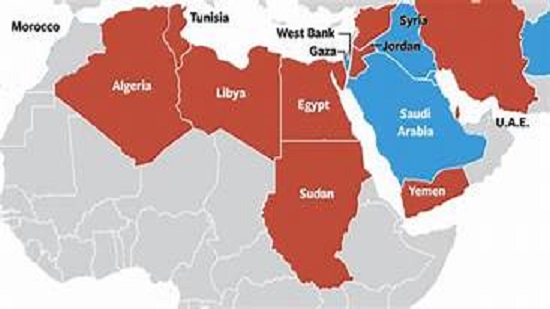A succession of international appeals has urged the need to see the universal challenge posed by the Covid-19 pandemic as an invitation to allow reason to prevail in order to bring to a halt the futile warfare in Libya, Syria, Yemen and other conflict zones in the Middle East. If asolidarity is what ordinary societies need now more than ever to fight the lethal virus and then struggle to resume normal life, war torn societies will require even greater collective resolve and more determined steps to achieve peace before it is too late.
The real battle in the Middle East
by Al Ahram
Opinion
00:04
Thursday ,16 April 2020

Most recently, the UN secretary general and his Middle East envoys called on all concerned parties “to engage, in good faith and without preconditions, on negotiating immediate halts to ongoing hostilities, sustaining existing ceasefires, putting in place more durable and comprehensive ceasefires, and achieving longer-term resolutions to the persistent conflicts across the region”. The appeal needs to be followed through immediately with practical steps undertaken by the UN in coordination with major powers in order staunch the bloodshed and halt the squandering of vast sums of money and resources on conflicts in the Middle East. In this regard, the Arab Coalition s recent ceasefire initiative in Yemen is a step in the right direction.
Channels for dialogue, negotiation, mediation and other peaceful means to reduce tensions and resolve disputes may not always be immediately within reach, but the perpetuation of the pandemic and the spectre of the total collapse of health and security systems in societies already afflicted by conflict do offer a platform for international groups and mechanisms to set to work to reach peaceful settlements on new foundations that prioritise humanitarian concerns in the available options.
Without effective communication across the divides of conflict, no effective challenge can be mounted to halt the spread of the mysterious virus and it will be impossible to share already scarce resources in societies torn by civil war and strife. There are urgent priorities that need to be observed in conflict zones. These include enabling medical and relief teams to reach internally displaced persons, refugees, civilian communities under siege and other intended beneficiaries among the victims of the destruction and deprivation caused by war. Another urgent priority is the need “to facilitate the safe, voluntary and dignified return of refugees and internally displaced persons to their homes through urgent, effective and meaningful measures”, as the UN envoys to the Middle East called for in their recent message.
The need to rise above narrow disputes and conflicts may be a difficult goal to attain in a short time, but the key players in the conflicts in this region have the power to bring conflicting parties to the negotiating table and to encourage them to reach out to each other in order to work together in what has been described the “real battle” for humankind. The longer international powers continue to ignore ongoing conflicts in the Middle East on the grounds that they are too preoccupied with the fight against Covid-19 at home, the greater the risks that this failure will rebound against them. This applies, in particular, to Europe in the event of a massive health crisis in the Middle East which could trigger higher rates of refugees fleeing the claws of death due to the lack of effective health barriers against the lethal virus in their already crisis-gripped societies.
Today, the world has the best available opportunity to put an end to the decade of bloodshed that has ravaged Yemen, Libya and Syria, even if some remain blinded by the pursuit of partisanship and narrow interests, preventing them from rising to the responsibility of the real battle against a relentless enemy that threatens all humankind.


